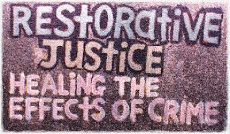What people don’t know is where Mike and I had our first date: it was at the men’s correctional institution in Lexington, Kentucky. What a romantic couple! We both volunteered to teach a Bible class at the prison, and since I had a car, I drove us.
Off we went to this forbidding-looking cement building with numerous layers of barbed wire fencing. I went with apprehension since I had never been in a prison before; but I agreed to do this because of the clear mandate of Matthew 25:36: “I was in prison and you came to me.” Going with this nice young man from Texas was an added bonus.
Deep emotional and spiritual pain
That
night my eyes were opened to the vast need in this area of ministry. The inmates were living in crowded conditions
with limited services, and there was deep emotional and spiritual pain. The visitation was as important as the Bible study
class, because the inmates wanted so much to talk and have someone listen to
them.
I and a number of faithful volunteers taught this class for 14 years for the Deaf inmates at this institution. I learned that the Matthew 25:36 part of the ministry--visiting and teaching inmates--is only the tip of the iceberg. As important as this basic aspect is, there is much more ministry to be done, as Christ calls us to also engage in a quest for Restorative Justice.
The week before Christmas one year a Deaf inmate I had been teaching in Bible study for several years was released. What a surprise Christmas gift! But ministering to a newly released inmate becomes the rest of Matthew 25. Food, drink, shelter, clothing, first haircut, and interpreting at the halfway house were among the gifts of compassion that the church and I were able to provide during those early months after his release.
'I was a stranger and you welcomed me'
Aftercare is one of the most neglected parts of prison ministry and probably the most important because it can affect a person’s future. Many released inmates end up back in prison because they were not able to “make it” on the other side. Churches that do prison ministry inside (teaching Bible classes, anger management classes, Kairos encounter weekends, etc.) need to do ministry outside as well, helping returning ex-inmates to find jobs, housing, transportation, education and training, and to find supportive community.
You may also want to join our conference's Prison Ministry & Restorative Justice Team's new effort to send signed Christmas cards to inmates. We need congregations and groups to print and sign pre-designed Christmas cards for the team to deliver to area correctional facilities for inmates there. For many who have no contact with outside family or friends, it may be the only Christmas greetings they will receive. Contact Marilyn Schneider, team chairperson, for more information (mschneider2222@gmail.com).
Prison ministry includes assisting families
Beyond Christmas, however, these families need support throughout the year in a plethora of ways. Kairos Outside is a Walk-to-Emmaus-type program designed to meet the spiritual needs of women waiting for their incarcerated loved ones. Churches can provide support groups for family members, help them prepare for their loved ones' re-entry, and provide transportation or child care to accommodate visits to the prison. There is no end to the many ministry needs and possibilities in this part of God's vineyard.
I hope that every church and mission connexion will find some way to be involved in prison ministry and restorative justice on a regular basis. It is a mandate from our Lord. The fields are ripe for harvest among the vast numbers of people--inside and outside--who are affected by our nation's criminal justice system. This can be a redemptive, healing journey worth taking into the very heart of Christ's call.
Bishop Peggy Johnson





No comments:
Post a Comment